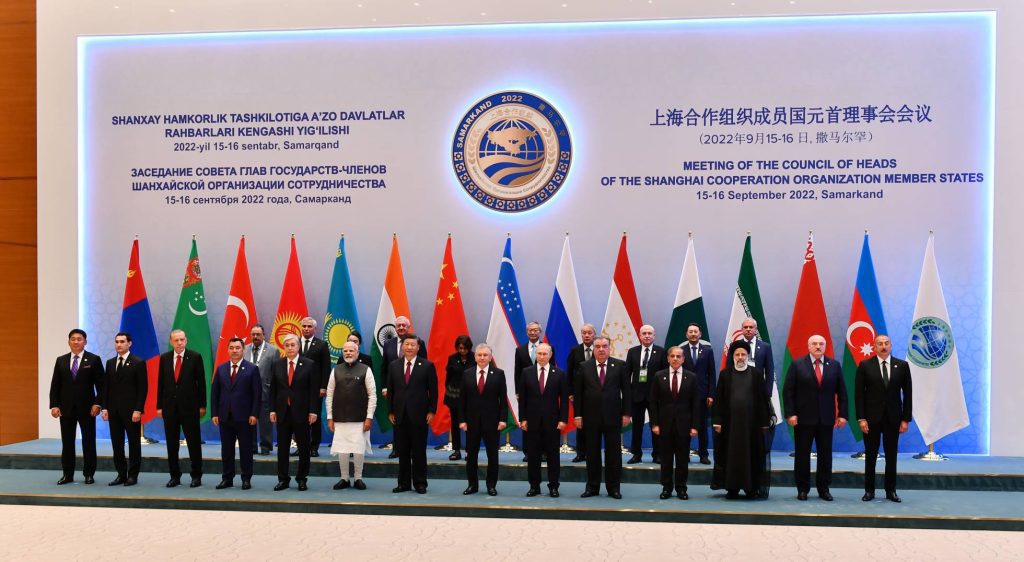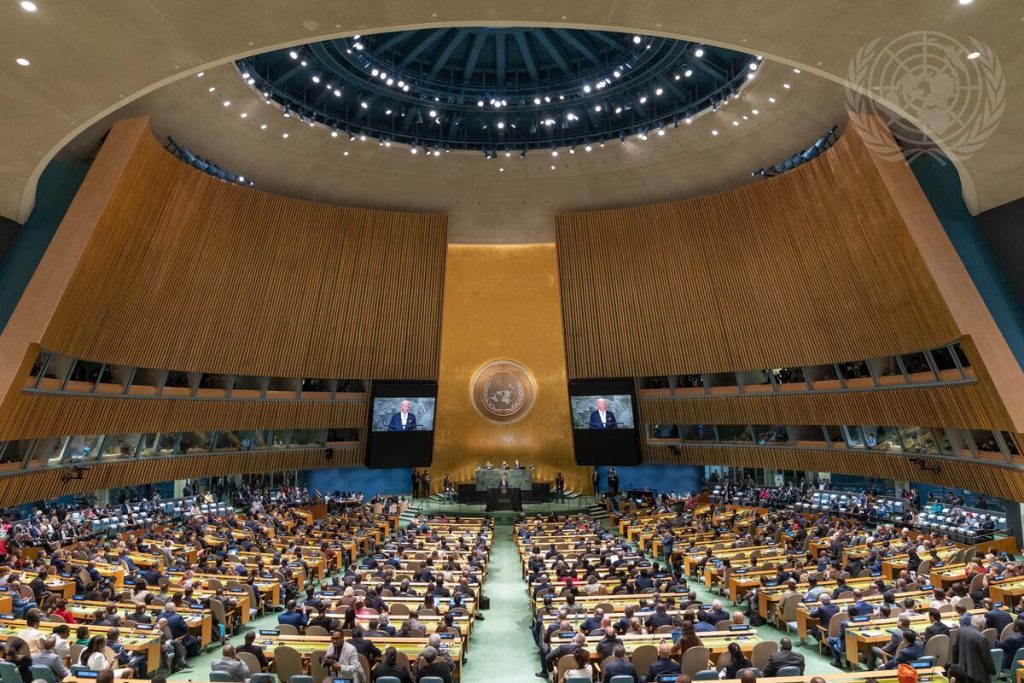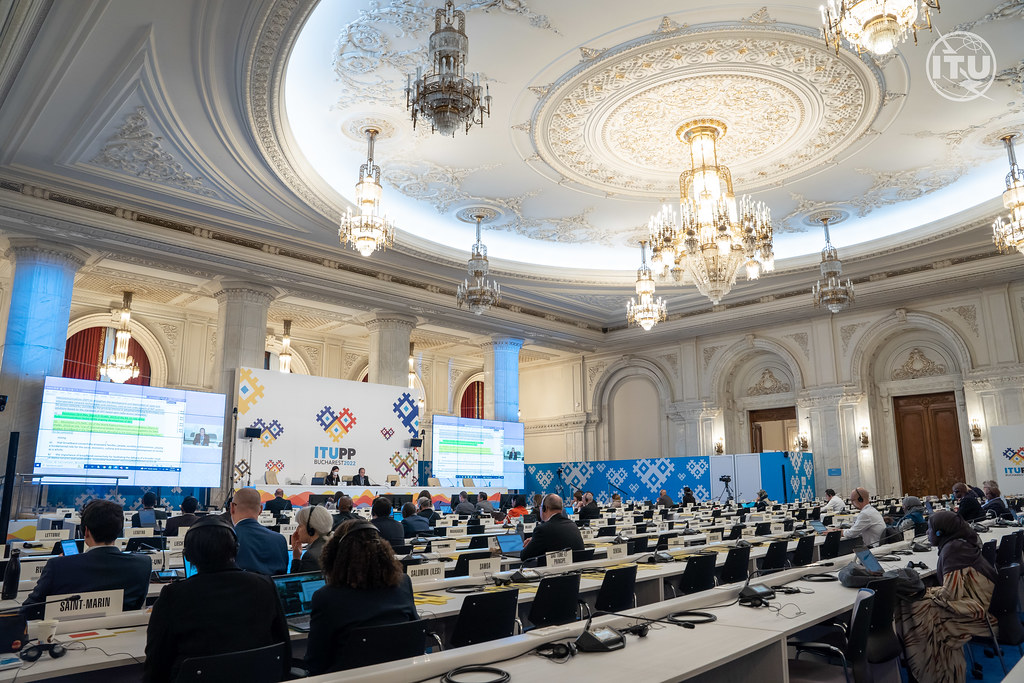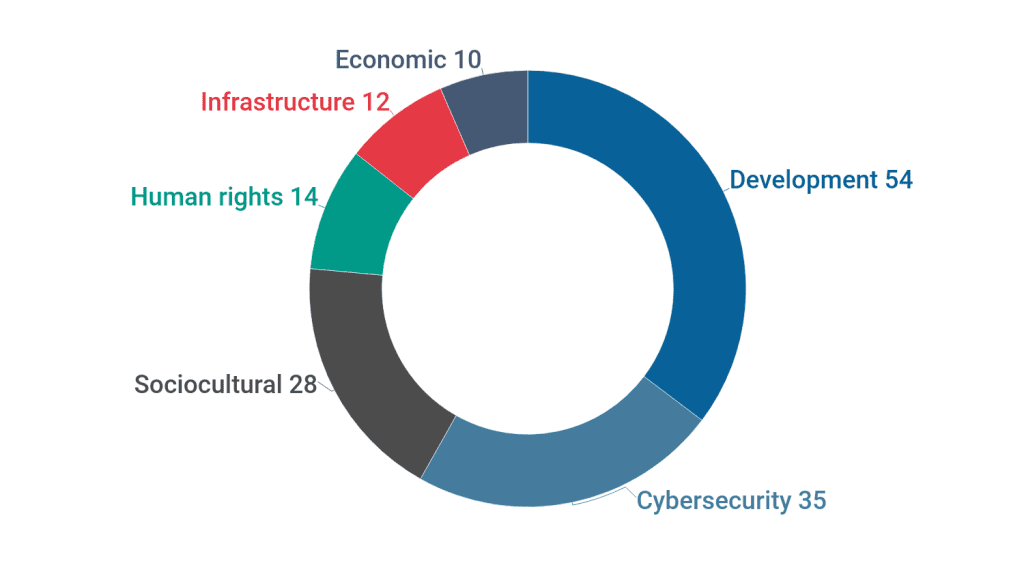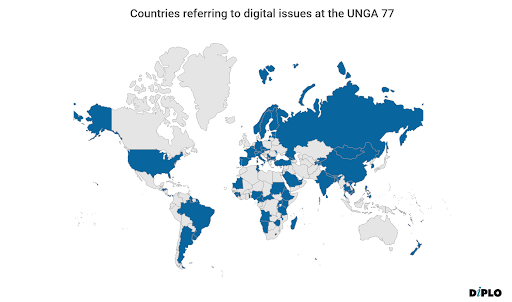Digital Watch newsletter – Issue 73 – October 2022
Download your copy
Accédez à la version française
In focus
An eventful September
1. SCO Summit
The Shanghai Cooperation Organisation (SCO), held its annual summit 15-16 September in Samarkand, Uzbekistan. The heads of SCO member states discussed peace and security, multilateral diplomacy, Asian north-south connectivity, legal cooperation, economy, the environment, digital topics, and more. On 16 September, they released the main document of the summit — the Samarkand Declaration.
Digital topics featured in 16 out of 120 points in the Samarkand Declaration, focusing on the security, economic, connectivity, and governance aspects of digitalisation.
The Samarkand Declaration is dominated by the security issues. The heads of states noted that the SCO Member States will continue to cooperate in the field of international information security. Member states were ‘categorically against the militarization of the ICT sphere.’ They also emphasised that the UN has a central role in countering threats in the information space. They expressed support for the development of universal rules, principles and norms of responsible behaviour of states, and welcomed the negotiations in the UN on a cybercrime convention. They noted that SCO members will continue to cooperate in the relevant negotiation mechanisms at the UN (likely the the UN Open-ended Working Group and UN Ad-hoc Committee on cybercrime, although no direct reference to the groups was made). In practical terms, states called for enhanced law enforcement cooperation to counter contemporary challenges including the criminal use of ICTs.
In terms of internet governance, the Declaration emphasised ‘equal rights of all countries to regulate the Internet and the sovereign right of States to manage it in their national segment’.
In the call for strengthening e-commerce cooperation, the SCO particularly emphasised the link between the digital economy and the need to increase employment. The creative economy should be used to unlock the creative potentials of SCO countries. Digital learning should facilitate development of innovative and creative economies.
Digitalisation, infrastructure development and technology innovations were also addressed.
Some of the practical measures included strengthening scientific and technological cooperation, including implementing projects in the field of digital innovative and energy-saving technologies, agriculture, finances and health including telemedicine. To support this, competitive technological infrastructure is required, and cooperation in the field of digital learning.
Consult the annotated analysis of the Samarkand Declaration.
SCO heads of state at Samarkand. Photo credit: Wikimedia.
2. UNGA 77
Diplomacy returned to New York in its pre-pandemic form. Like every past September, with the exception of the last two years, world leaders from UN member states gathered at the UN headquarters in New York to debate the world's most critical issues. It comes as no surprise that this year's main focus was on global peace and security challenges - the Ukraine war - which adds to existing pressing issues, such as those caused by COVID-19, climate change, poverty and inequalities.
Even though the vast majority of countries’ speeches focused on Ukraine and or energy, food and climate crises, digital featured prominently on the agenda. Read more below.
The UNGA 77 in session. Photo credit: UN Photo
3. ITU Plenipotentiary unfolding
As we write these lines, the International Telecommunication Union (ITU) is holding its plenipotentiary conference (PP-22) in Bucharest, Romania. The ITU does not often appear in the media, but this three-week event has attracted quite some attention recently. The Economist, Politico, Washington Post and several others wrote about the election of the ITU Secretary-General, which resulted in the overwhelming victory of the US over the Russian candidate. Other elections for the ITU leadership, Council and other bodies send signals that will guide the work of the ITU in the next 4 years.
But the plenipot is about more than elections. ITU members also decide on the organisation’s strategic plan for the next four years, as well as on revising existing resolutions and adopting new ones (on matters as diverse as telecom networks, spam, child safety online, and artificial intelligence). Across all these discussions, one question is overarching: What exactly is or should be ITU’s role on matters going beyond typical telecommunications? One example: The ITU draft strategic plan – developed and endorsed by the ITU Council – contains one contentious issue: Should cybersecurity be listed among the ITU’s thematic priorities? Or should ITU’s work on cybersecurity be reflected as a cross-cutting activity within other priorities?
Similar questions come up when we look at the many contributions submitted by member states and regional groups in the lead-up to the conference: What role (if any) should ITU play regarding internet-related public policy issues and internet resources? (One proposal suggests that the dedicated Council working group comes up with ‘recommendations leading to sustainable, secure, and stable internet critical infrastructure in order to avoid internet fragmentation’.) What about the organisation’s coverage of AI? (There are a few proposals for a new ITU resolution on AI.) Should there still be discussions about revising the International Telecommunication Regulations (ITRs), given that the group tasked with looking into this matter could not agree on anything so far?
We will soon know whether member states manage to reach consensus on any of these issues. Meanwhile, you can read more about key issues on the plenipot’s table in our briefing note. After the conclusion of ITU’s plenipot (14 October), the GIP Digital Watch Observatory will provide a reflective analysis.
Delegates during a PP-22 committee meeting. Photo credit: ITU.
Data analysis
UNGA 77 - Digital is alive
Digitalisation featured in almost half of statements by national leaders during the 77th UN General Assembly, as 92 delegates addressed challenges and opportunities stemming from digitalisation of everything, as you can see from the in-depth analysis of statements delivered in New York between 20 and 26 September. We break down these digital aspects based on Diplo’s digital governance taxonomy, which features over 50 digital policy areas classified under seven baskets (see below).
Number of countries addressing different digital policy clusters.
As somewhat expected, development was by far the most prevalent digital policy theme, with most countries referring to access to technologies, capacity development, and the use of digital for sustainable development. The development component was pronounced in national statements of the countries from the Global South in particular. For instance, Mauritania referred to significant challenges posed by the unequal distribution of new technologies as a ‘gap that is widening day by day, between two worlds – one of which entered the Fourth Industrial Revolution and the era of artificial intelligence, while the second, due to ignorance and poverty, suffers under the weight of underdevelopment.’ Angola and Lesotho also referred to persistent disparities in economic and technological development. Still, they recognised the need for concerted efforts to enable citizens worldwide by using digital technologies for sustainable development. Moreover, a number of countries, such as Cambodia, Samoa, Jamaica, Namibia, Guinea-Bissau, Bhutan, and Kenya, prioritised investment in digital infrastructure, inclusive digital policies, and regulatory frameworks to ensure a level playing field in the digital economy.
Digitalisation of public services featured in numerous statements (e.g. Latvia, Malta, and Mongolia), along with the digitalisation of other sectors, such as agriculture and health in statements delivered by Kenya, Samoa, Panama and Israel, to name but a few.
The promise of digital transformation can only be achieved if access to digital technologies is universal, as underlined by Argentina and the Republic of Korea. It is therefore essential for the UN to take a leading role in mobilising support for these initiatives.
Cybersecurity came in second place. It is no wonder that cyberconflict and warfare was the most dominant issue, given the extremely volatile geopolitical backdrop. More than a half of countries focusing on the issues of cyberwarfare are European countries addressing state-sponsored cyberattacks which have turned ‘digital space into a battlefield’, as noted by Monaco and Latvia. The importance of trust was stressed in the statement by Singapore, saying that ‘erosion of trust and an atmosphere of confrontation will only breed cyberthreats and malicious cyber activities’. A number of countries including Monaco, Nepal and Finland called for a set of common rules to protect cyberspace and curb malicious use of cyber tools, while others (e.g. Nepal, India, Tonga, Samoa, and Bulgaria) highlighted the need for cooperation and multilateral efforts to enhance cybersecurity.
Other cybersecurity-related topics referenced cybercrime and violent extremism, albeit to a lesser extent. On cybercrime, several countries, including Jamaica, Togo, Russia, and the Holy See voiced their support for the work of the Ad hoc committee to elaborate an international convention on countering the use of ICT for criminal purposes. Violent extremism has been discussed primarily in relation to the Christchurch Call. New Zealand, one of the co-sponsors of the Call urged countries to join the initiative, noting that the Call Community has improved crisis response, prevented live streamed attacks, and put in place crisis protocols to prevent proliferation.
The third most prominent cluster was sociocultural, where the main focus was on the topic of content policy and the spread of disinformation and hate speech. In their respective statements, nations referred to these threats as a challenge to democracy and human rights, while also calling for building trust and creating a safer digital world. To that end, Latvia pointed to the necessity to increase society’s resilience in times of crises through the combat of disinformation, promotion of media literacy, and enhancement of media freedom. Bulgaria, Mauritius, Nigeria, Monaco, and Slovakia called for the international community to take the steps in combating the proliferation of disinformation and hate speech, while also ensuring protection of the freedom of expression.
When it comes to online education, for most nations addressing the topic, challenges are closely intertwined with access, digital divide, digital inclusion, connectivity, adequate infrastructure, and challenges caused by COVID-19. Similarly, small developing states – such as Samoa, Vanuatu and St Kitts and Nevis – highlighted that the pandemic made it challenging to ensure the continuation of education.
Issues pertaining to the human rights, infrastructure, and economic clusters came in fourth, fifth and sixth position, respectively. References to human rights can be found in statements pointing to the need for the promotion of human rights both offline and online. The issues pertaining to the freedom of expression occasionally appeared in national statements addressing disinformation and hate speech. Emerging and new technologies were mentioned in several statements, mostly relating to the regulation of the use of these technologies, such as AI in cyberspace and keeping human needs and interests at the centre of those technologies. Finally, the future of work was the most dominant topic in the economic cluster, with countries like Rwanda and Fiji setting their priorities in creating more digital jobs, while the Philippines cautioned about possible displacement of human labour as a result of advances in automation.
Issues pertaining to the human rights, infrastructure, and economic clusters came in fourth, fifth and sixth position, respectively. References to human rights can be found in statements pointing to the need for the promotion of human rights both offline and online. The issues pertaining to the freedom of expression occasionally appeared in national statements addressing disinformation and hate speech. Emerging and new technologies were mentioned in several statements, mostly relating to the regulation of the use of these technologies, such as AI in cyberspace and keeping human needs and interests at the centre of those technologies. Finally, the future of work was the most dominant topic in the economic cluster, with countries like Rwanda and Fiji setting their priorities in creating more digital jobs, while the Philippines cautioned about possible displacement of human labour as a result of advances in automation.
Prefix monitor
The use of prefixes at the UNGA 77 mirrors the order of the most dominant digital policy clusters with digital being the most prevalent use. Cyber came in second place, while other prefixes were less prominent.
Geneva
Numerous policy discussions take place in Geneva every month. The following updates cover the main events in September. For event reports, visit the Past Events section on the GIP Digital Watch Observatory.
The 51st Regular Session of the Human Rights Council | 12 September–7 October
The 51st regular session of the Human Rights Council reviewed the annual reports of the UN High Commissioner for Human Rights, human rights situations that call for attention, and follow-up on the Vienna Declaration and Programme of Action and the Durban Declaration and Programme of Action.
In an Interactive Dialogue (ID) session held on 16 September, member states were invited to discuss the High Commissioner’s report titled The right to privacy in the digital age (A/HRC/51/17). As technological advancement accelerates, more and more digital tools that could be used against humans by monitoring, profiling, and controlling have emerged. The Pegasus spyware has been identified particularly for its grave extent of influence. To avoid the compromise of the right to privacy, the Human Rights Council addressed three notable trends that call for states’ attention: the widespread abuse of intrusive hacking tools, the key role of robust encryption, and the widespread monitoring of public spaces. Adopted resolutions and decisions can be found here.
WTO Public Forum 2022 – Towards a Sustainable and Inclusive Recovery: Ambition to Action | 27–30 September
The 2022 World Trade Organization (WTO) was held under the theme of post-pandemic economic recovery. The forum facilitated discussions around different ways to strengthen trade rules and improve government policies to become more resilient and sustainable. Three sub-themes included 1) how to leverage technology for an inclusive recovery,2) how to deliver a trade agenda for a sustainable future, and 3) how to frame the future of trade.
The high-level panel on 28 September specifically mentioned the still-staggering digital divide and the need to level the playing field. Referring to the ongoing e-commerce negotiations at the WTO, panellists concluded that putting in place the right rules for the digital economy would be a starting point for both developed and developing countries to harness growth. Watch the recording here.
The Geneva Declaration on Targeted Surveillance and Human Rights | 29 September
On the margins of the 51st Human Rights Council regular session, titled Spyware: A Threat to Human Rights and Democracy, saw the launch of the Geneva Declaration on Targeted Surveillance and Human Rights. Led by civil society organisation Access Now and the Regional Government of Catalonia, stakeholders came together to condemn the proliferation of surveillance targeting communities engaged in peaceful protests, social movements, and human rights and democracy advocacy. The declaration commits stakeholders to protect democracy and human rights in the digital age by ceasing the use of targeted digital surveillance technologies, establishing legal and policy frameworks for the oversight of such technologies, developing safeguards and standardised clauses for the acquisition and use of said technologies, and more. The declaration is expected to serve as an advocacy tool for more governments, companies, tech professionals, and academics to adopt relevant measures.
Upcoming
Upcoming events
European Cyber Security Month | 1-31 October (Online and across the EU)
The European Cybersecurity Month is celebrating its 10th edition this year. The EU Agency for Cybersecurity (ENISA) is partnering with the commission and member states in recognition of #CyberSecMonth: the EU’s annual campaign dedicated to promoting cyber security among EU citizens. This year’s topics are ransomware and phishing, and citizens and organisations are invited to take part in workshops, lectures, and other awareness-raising activities.
AI Policy Summit 2022 | 10–14 October (Online and Zürich, Switzerland)
The third AI Policy Summit, organised by RegHorizon and ETH Zurich’s Center for Law and Economics, will gather once again as a multistakeholder dialogue on AI policy for a better world. Topics vary from building the necessary bridges between regions and stakeholders to a specific focus on AI and justice, democracy, and the future of work. The spotlight will be on AI policy developments in India, Singapore, and Africa. A special addition this year is that the summit will be followed by the ETH AI Center’s AI+X Summit on 14 October.
Singapore International Cyber Week | 18–20 October (Singapore)
Organised by the Cyber Security Agency of Singapore (CSA), under the theme Digital Security – A Shared Responsibility, the seventh Singapore International Cyber Week will be held at the Sands Expo and Convention Centre in Singapore. The region’s leading cybersecurity event will host a variety of talks, including an exchange of best practices and strengthening international cooperation on topics ranging from emerging digital opportunities and cyber threats, evolution of cyberspace and cybersecurity policies, implementation of cyber norms, the IoT, and Operational Technology (OT) security.
ARIN 50 | 20–21 October (Hollywood, USA)
The American Registry for Internet Numbers (ARIN) 50th Public Policy and Members Meeting is set to take place in Hollywood, California on 20 and 21 October. As with previous biannual meetings, the internet community will discuss key topics such as the distribution of IP addresses and autonomous system numbers. A rundown of the draft and recommended draft policies that will be under discussion is also available in preparation of the meeting.
2022 Innovations Dialogue: AI Disruption, Peace, and Security | 20 October (Online and New York, USA)
The future of AI, potential pitfalls and opportunities of AI for international peace and security, responsible AI, and the overall integration of AI technologies in critical sectors are some of the topics that will be discussed at the 2022 Innovations Dialogue. The 2022 Innovations Dialogue is organised by the UN Institute for Disarmament Research (UNIDIR). The fourth flagship edition will be both online and offline, and UNIDIR invites experts working on issues of advancement of digital technologies, particularly, AI and their implications for international peace and security to be part of these processes.
Digital Cooperation Day – Discussion on the Global Digital Compact
Digital Cooperation Day – Discussion on the Global Digital Compact
As discussions on the Global Digital Compact (GDC) are taking off, Geneva actors will gather during a digital cooperation day for brainstorming on inputs into the GDC. This discussion with the UN Secretary-General’s Envoy on Technology is organised by the Geneva Internet Platform, the Permanent Mission of Switzerland to the UN and the Swiss Federal Office of Communications (OFCOM).
The vision for the Global Digital Compact was previously outlined in the UN Secretary-General's Our Common Agenda report. The GDC should be a part of the UN Pact for the Future, addressing the following digital policy issues:
- Reaffirming the fundamental commitment to connecting the unconnected
- Avoiding fragmentation of the internet
- Providing people with options as to how their data is used
- Applying of human rights online
- Promoting a trustworthy internet by introducing accountability criteria for discrimination and misleading content
- Regulating artificial intelligence (AI)
These digital issues are addressed by Geneva-based actors from standardisation, economic, cybersecurity, and human rights perspectives. The comprehensive mapping of digital policy and internet governance scene in International Geneva, as outlined in the Geneva Digital Atlas 2.0 will inform discussions on the GDC.. The atlas provides in-depth coverage of the activities of almost 50 actors, including the analyses of policy processes and cataloguing of core instruments and featured events.
After introductory statements by high officials and the UN Tech Envoy, the first panel will address priority policy questions for international organisations, permanent missions and the business community in Geneva. The second panel will feature concrete projects and tools for the Lake Leman region that could be relevant for developing the GDC.

